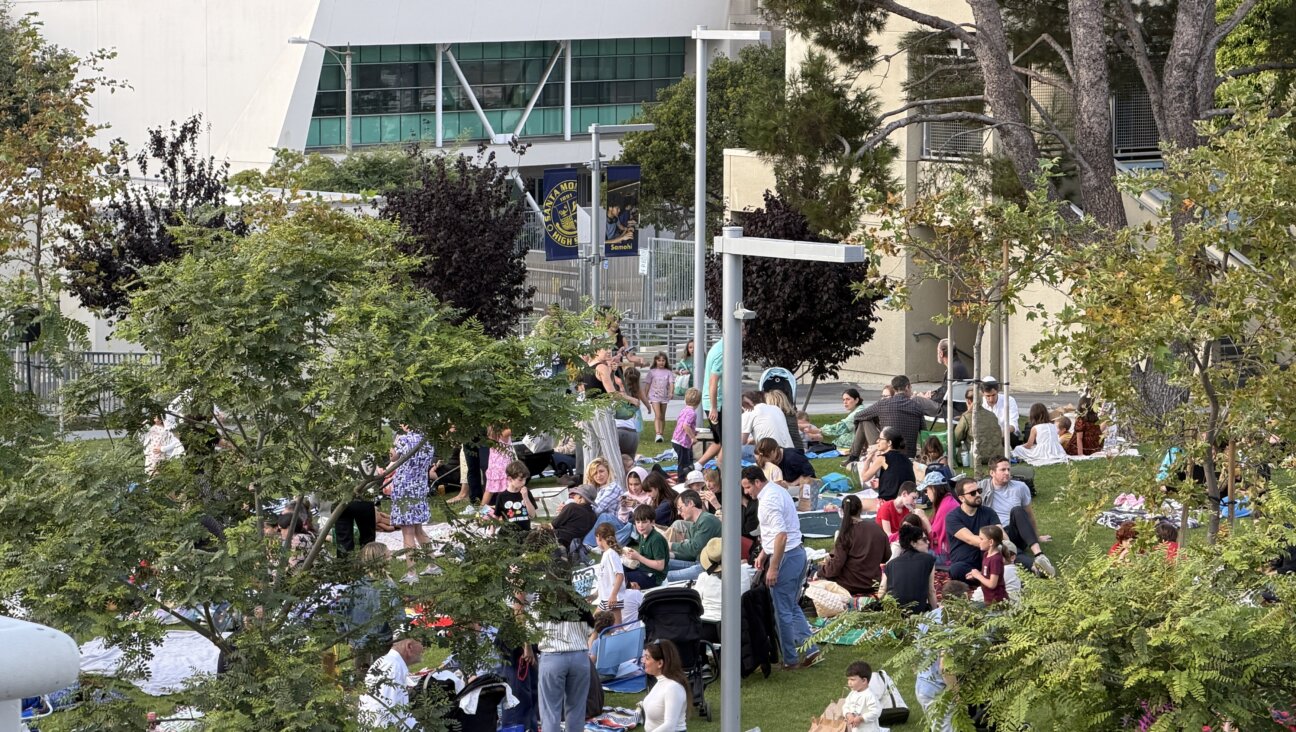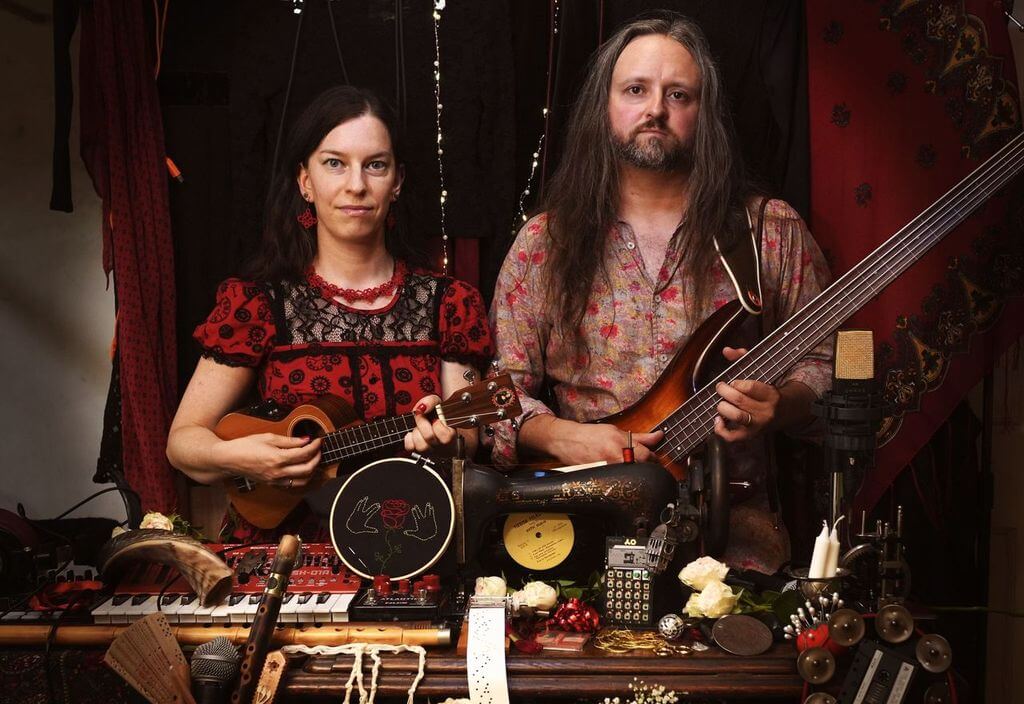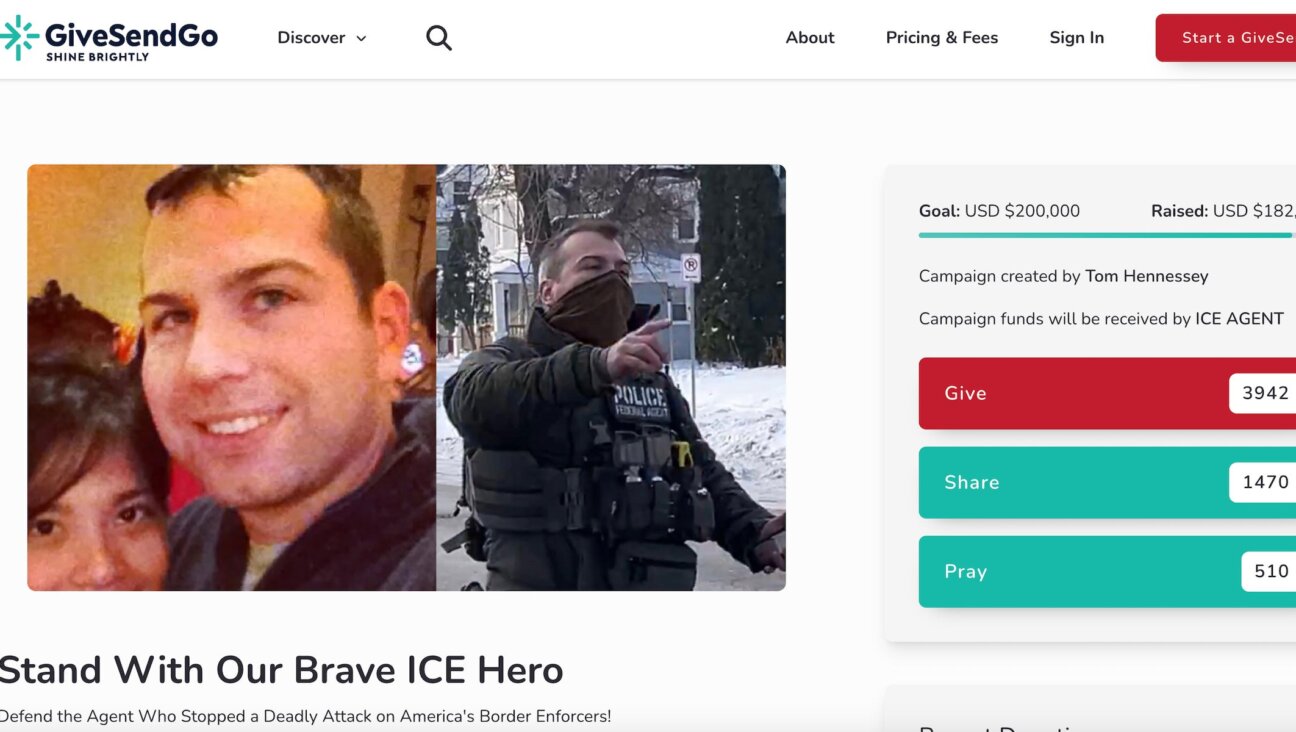Orthodox Woman’s Journey From Teen Wife to Advocate

Graphic by Angelie Zaslavsky
Fraidy Reiss was married at the age of 19 to a man she despised. Outwardly, she had a choice. The ultra-Orthodox matchmaker she went to gave her two men to choose from. She went on a couple of dates. She desired neither. But as a girl perilously close to 20 in the Hasidic community of Brooklyn, she finally agreed to marry one.
A week into the marriage, Reiss’s husband woke up late and, in a blind rage, punched a hole in the bedroom wall. It was the beginning of nearly 15 years of living with a man whose constant physical threats against her — though he never actually beat her — came to dominate Reiss’s daily life.
Today, Reiss sits in a crowded coffee shop at New York’s Port Authority and reflects on the huge distance she has traveled in the past 18 years, from that marriage to her current role as head of a not-for-profit group that helps women — Jewish and non-Jewish — get out of forced marriages.
“It’s hugely cathartic,” she said. “When I can give somebody the support that I didn’t have, every time that’s healing.”
It was in 2011, after her ultimately successful struggle to leave her marriage, get a college degree and work as a journalist and, later, as a private investigator, that Reiss resolved to help women going through what she had experienced.
Unchained at Last, the not-for-profit organization she founded that year, seeks to support women from all cultures or religions who want to leave a forced marriage. Acting as a sort of social services middleman, the organization connects women with pro bono divorce lawyers, social workers, counselors and psychotherapists — all volunteers. Reiss and her board members — each from a different community in which arranged marriage is common — also put women in touch with mentors from a similar background, to help advise them on how to navigate these difficult waters.
Reiss says that her organizations helps women from Jewish and Muslim families, and from South Asian and African cultures.
“My battles are immense,” said one ultra-Orthodox Jewish woman from England whom Unchained is helping. The woman moved to the United States with her husband, to whom she was married for 10 years. Now separated from the man who, she said, abused her, the 32-year-old woman, has been diagnosed with cancer. Surviving an experience like this “is about finding that one person that you can fall back on,” said the woman, who spoke only on condition of anonymity. “Fraidy’s that person.”
Unchained set her up with a divorce attorney from an experienced law firm. The attorney took on her case pro bono. But that was just the beginning. When the woman had trouble getting to the hospital from her home on Long Island, Reiss raised money to help her buy a used car. “I actually sleep at night,” the woman said. “There are other people fighting — really fighting — for my case.”
Unchained also lobbies for legislation. Recently, Reiss collaborated with New Jersey Senate Majority Leader Loretta Weinberg to draft a law that would enable women to access their own crime victim records for free, so that they can use them as proof in order to obtain final restraining orders.
Unchained depends largely on donations of time from volunteers and on money from individual donors. But its startup was made possible by the Good People Fund, a Jewish organization that gives grants to not-for-profits that have budgets of less than $500,000. Unchained’s budget for 2012 was $20,000. The organization does not yet have a full-time staff, but it has managed to help more than 40 women in New Jersey and New York this year, according to Reiss.
Naomi Eisenberger, who founded the Good People Fund, also provides mentorship throughout the startup phase. Her determination to back Unchained was driven in part by the broad spectrum of women from different backgrounds that Reiss’s group serves. Reiss is “raising awareness of the fact that arranged marriages occur in many cultures, not just in the Jewish community,” Eisenberger said.
A 2011 study — the first of its kind in the United States — conducted by the Tahirih Justice Center of people most likely to be first responders to cases of forced marriage, including law enforcement authorities, legal service providers and social workers, reported nearly 3,000 suspected cases of forced marriage in the United States, involving individuals from 56 different countries.
There may be even more than that. Fewer than 10% of those surveyed agreed that their agency had a working definition of forced marriage, and only 22% said that their agency’s screening process enabled them to properly identify instances of forced marriage.
The study itself defined forced marriage as “one that takes place without the full and free consent of one or both parties” and distinguished this from an arranged marriage, in which, it stated, “the choice ultimately remains with the individual.”
Avi Shafran, director of public affairs for Agudath Israel of America, an ultra-Orthodox umbrella group, agrees with that definition. For him, there is no such thing as forced marriage in the Jewish community. Jewish law, he said, does not permit it.
“There are certainly ‘arranged marriages’ in some Orthodox circles, but that just means that parents of a young man and young woman decide that their children are a good match,” he explained. “But in such cases, the young people must approve of one another before marrying.”
Reiss argues that “choice” is a relative term. Technically, she pointed out, she could have refused to marry. There is having a choice, and then there’s “choice,” she said. That is even truer after the marriage takes place.
Shafran acknowledged that, like all communities, the Orthodox Jewish community is not immune to domestic abuse. But he was reluctant to counsel in favor of secular authorities, whom he said “are powerless to do anything about the most common form of abuse in a marriage: psychological abuse.”
Instead, he advised, a woman seeking shelter from an abusive husband should approach the abuser’s rabbi, who should be able to effectively intercede. “[If] bringing in secular authorities is the only way to protect the wife (or husband), that will likely be the counsel of an experienced rabbi,” he said in an email.
When Reiss walked into the police department of Lakewood, N.J., and asked for a temporary restraining order against her husband, she had been living with him for nearly eight years, during which, she said, she feared constantly for her life and for the safety of her two children.
“I probably was the first Orthodox Jewish woman ever in Lakewood, N.J., to walk into the police department and ask for a restraining order against her husband,” she said. “They were shocked.”
Her friends, family and community were outraged — but not at her husband. A rabbi in her community dispatched an ultra-Orthodox lawyer to her home. His job was to escort her to court to withdraw the complaint.
The judge asked her if she was withdrawing it of her own free will, Reiss recalled. Glancing at the lawyer next to her, Reiss lied through her teeth and said, “Yes, your honor.”
“There was no help for somebody like me,” she said. “I needed to help myself or I was going to end up dead.”
People tend to envision forced marriage as something that immigrants bring with them when they come to the United States. In fact, many of the cases Reiss sees involve second- and even third-generation American women. Class also is no bar to becoming a victim.
“Some of the South Asian women who have come to us have advanced degrees and developed networks,” said Kavitha Rajagopalan, secretary of the board of Unchained. In those cases, Unchained provides a less direct but still crucial service: a sense of validation and of emotional support for women whose families, fearing the shame of divorce, often pressure them to stay married.
This psychological pressure can be overwhelming. At one point, when Reiss herself was alone and still financially dependent on her husband, she asked her mother if she and her children could move in with her.
Her mother turned and silently walked out of the room.
Under traditional Jewish religious law, a wife cannot divorce her husband without obtaining a get, or religious bill of divorce, from him. But after a legal battle with her husband stretching longer than three years, Reiss was unwilling to be held hostage to his will. She divorced her husband civilly, without obtaining a get.
At the age of 27, even before her divorce, Reiss applied, and was accepted, to Rutgers University. There she stopped wearing a head covering, and her family shunned her. “I have one sister who kept in touch long enough to tell me that the others were considering sitting shiva for me as if I had actually died,” Reiss said. Out of all the people she knew in the first 30 years of her life, Reiss is in contact with one: that same sister, whom she calls once a year, on the anniversary of her nephew’s death. “Sometimes she picks up, sometimes she doesn’t,” Reiss said.
Reiss graduated Rutgers at age 32 and was the undergraduate commencement speaker for her class. She became a journalist for the Asbury Park Press before finding work as a private investigator — a job she still relies on for her living, even as she devotes increasing time to Unchained.
Ultimately, Reiss’s goal is for Unchained to grow into a national organization that could influence national policy. Rajagopalan, who is also a senior fellow at the World Policy Institute, believes that Unchained will succeed largely because of the woman behind it. “Fraidy is unique,” she said. “She’s openly secular, feminist, humanist and boundlessly empathetic.”
Contact Anne Cohen at [email protected]
















